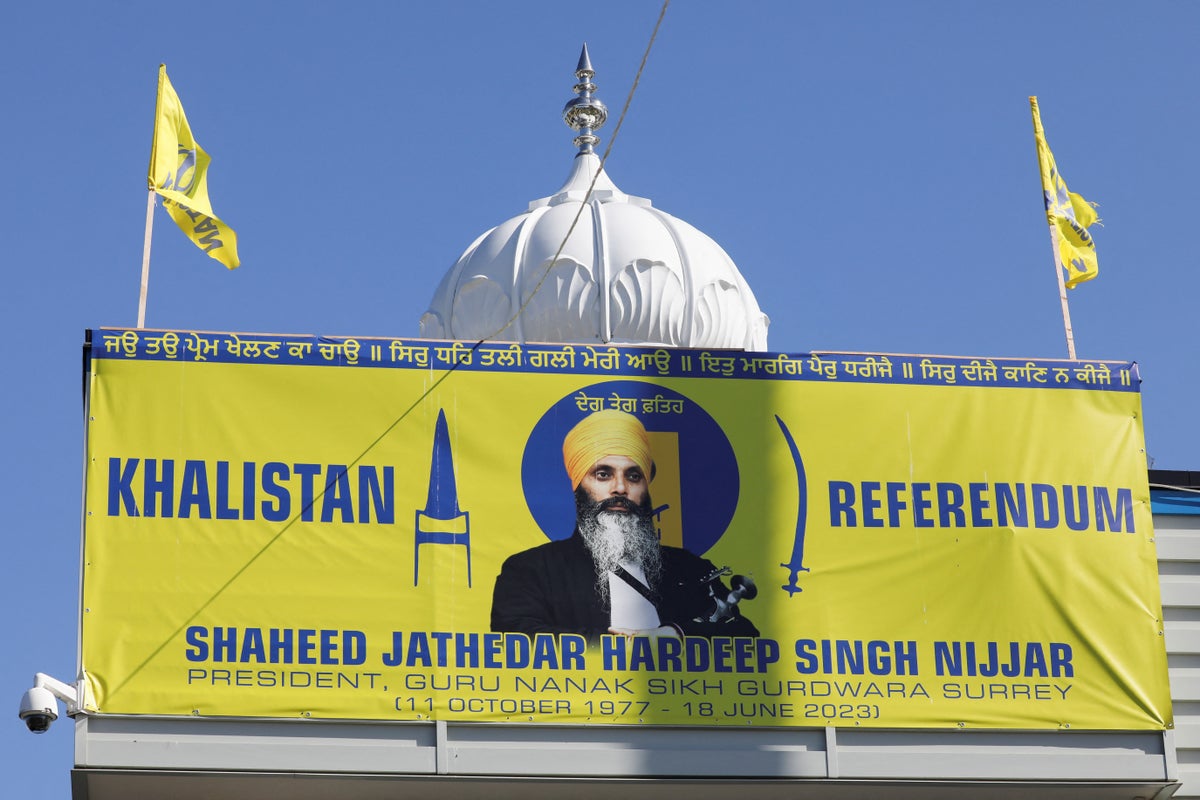
Canada has a responsibility to defend its citizens, defense minister Bill Blair said amid nosediving diplomatic relations with India over the murder of a Sikh leader on Canadian soil.
The crisis between New Delhi and Ottawa unfolded last week after prime minister Justin Trudeau accused the Indian state of involvement in the killing of the Canadian national.
Hardeep Singh Nijjar, a Sikh separatist leader, was murdered in Vancouver on 18 June by two masked men, who fired an estimated 30 to 50 shots at him.
“We understand that this can be, and has proven to be, a challenging issue with respect to our relationship with India," Mr Blair was quoted as saying by Global News. “But at the same time, we have a responsibility to defend the law, defend our citizens, and at the same time make sure that we conduct a thorough investigation and get to the truth."
He also said that if the allegations are proven true then “there is a very significant concern that Canada will have with respect to the violation of our sovereignty in the murder of a Canadian citizen on Canadian soil."
He, however, suggested that Canada will continue to pursue a strategic partnership with India, alongside the investigation carried out by Royal Canadian Mounted Police.
Canada reportedly has human and signals intelligence backing up their theory of the assassination, including communications involving Indian officials in Canada, CBC reported.
"I can assure you that the decision to share these allegations on the floor of the House of Commons … was not done lightly," Mr Trudeau had told parliament last week. "It was done with the utmost seriousness."
The allegations have sparked a bitter row between the two countries.
Ottawa expelled a senior diplomat working for Indian intelligence, while India which labelled Nijjar a “terrorist” in 2020, angrily rejected the allegation as "absurd", expelled the chief of Canadian intelligence in India, issued travel warnings, stopped visa issuance to Canadians and downsized Canada‘s diplomatic presence in India.
Sikhs, who account for just two per cent of India’s 1.4 billion population, now fear backlash from India’s Hindu-nationalist government and a threat to their prospects for a better life in North America, reported Reuters.
Outside of north Indian state of Punjab, the greatest number of Sikhs live in Canada, the site of many protests that have irked India.
Canadian prime minister Justin Trudeau takes part in a meeting with Indian prime minister Narendra Modi during the G20 Summit— (AP)
The once-prosperous breadbasket of India, Punjab has been overtaken by states that focussed on manufacturing, services, and technology in the last two decades.
"Now every family wants to send its sons and daughters to Canada as farming here is not lucrative,” said Nijjar’s uncle, Himmat Singh Nijjar.
India is the largest source for international students in Canada, their numbers jumping 47 per cent last year to 320,000.
"We now fear whether Canada will give student visas or if the Indian government will create some hurdles," undergraduate Gursimran Singh, 19, told Reuters.
Ties between Sikh groups in Punjab and prime minister Narendra Modi’s Hindu-nationalist Bharatiya Janata Party (BJP) government have been strained since Sikh farmers led year-long protests against farm deregulation in 2020 and blocked the capital, forcing Mr Modi to withdraw the measure in a rare political defeat for the strongman.







